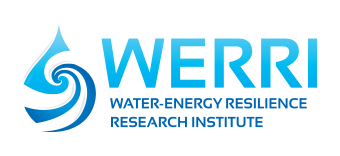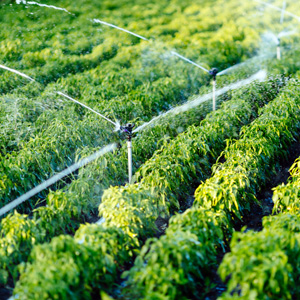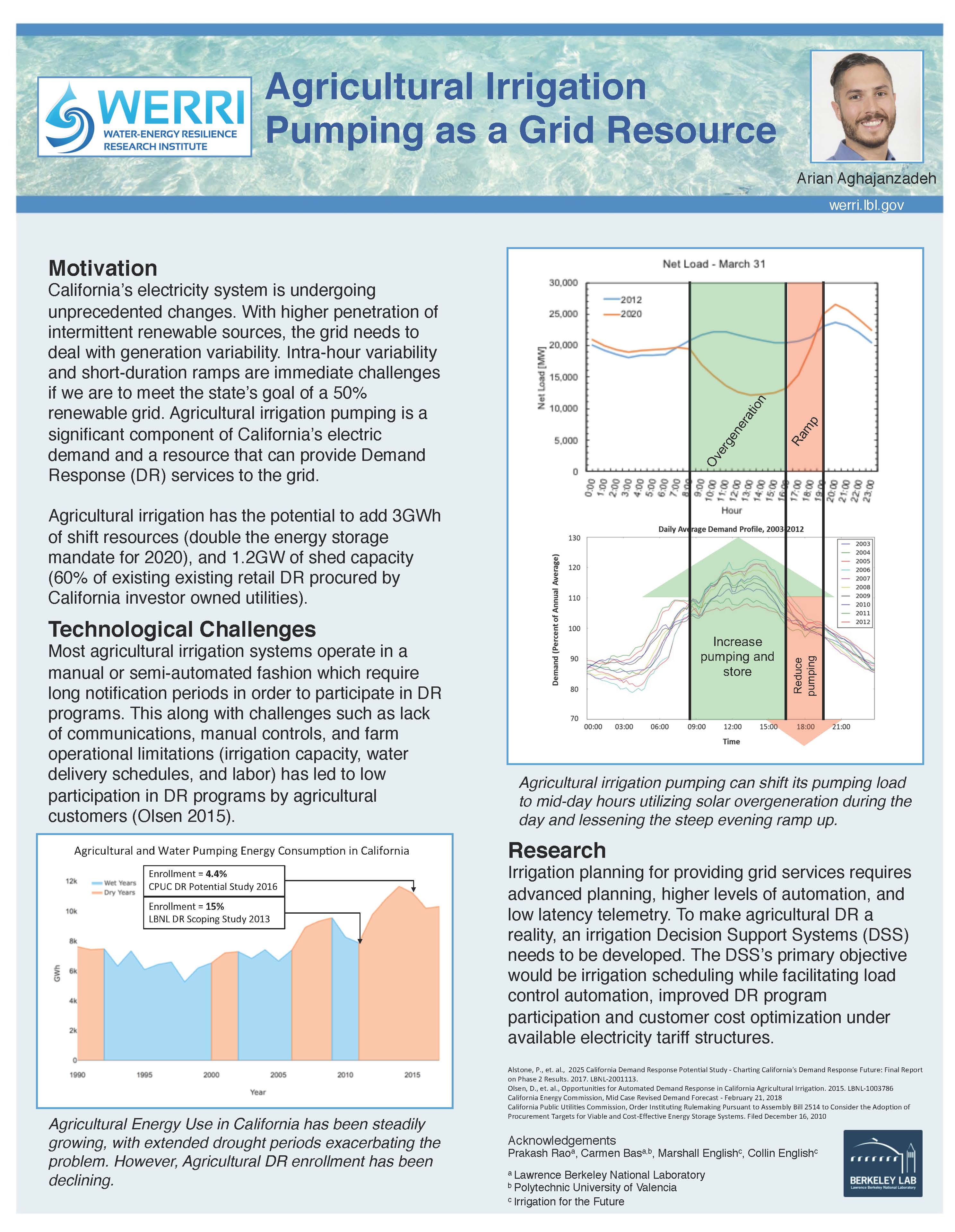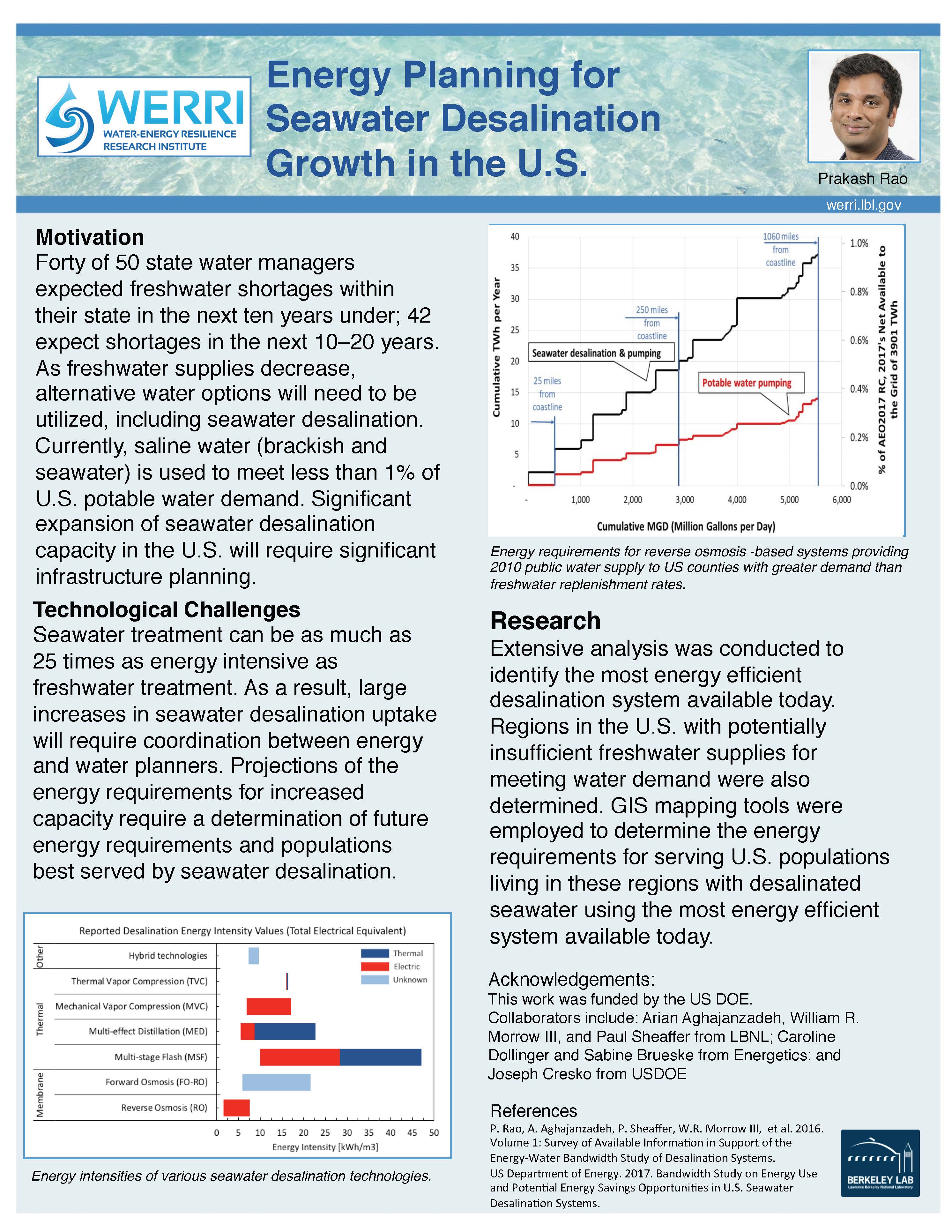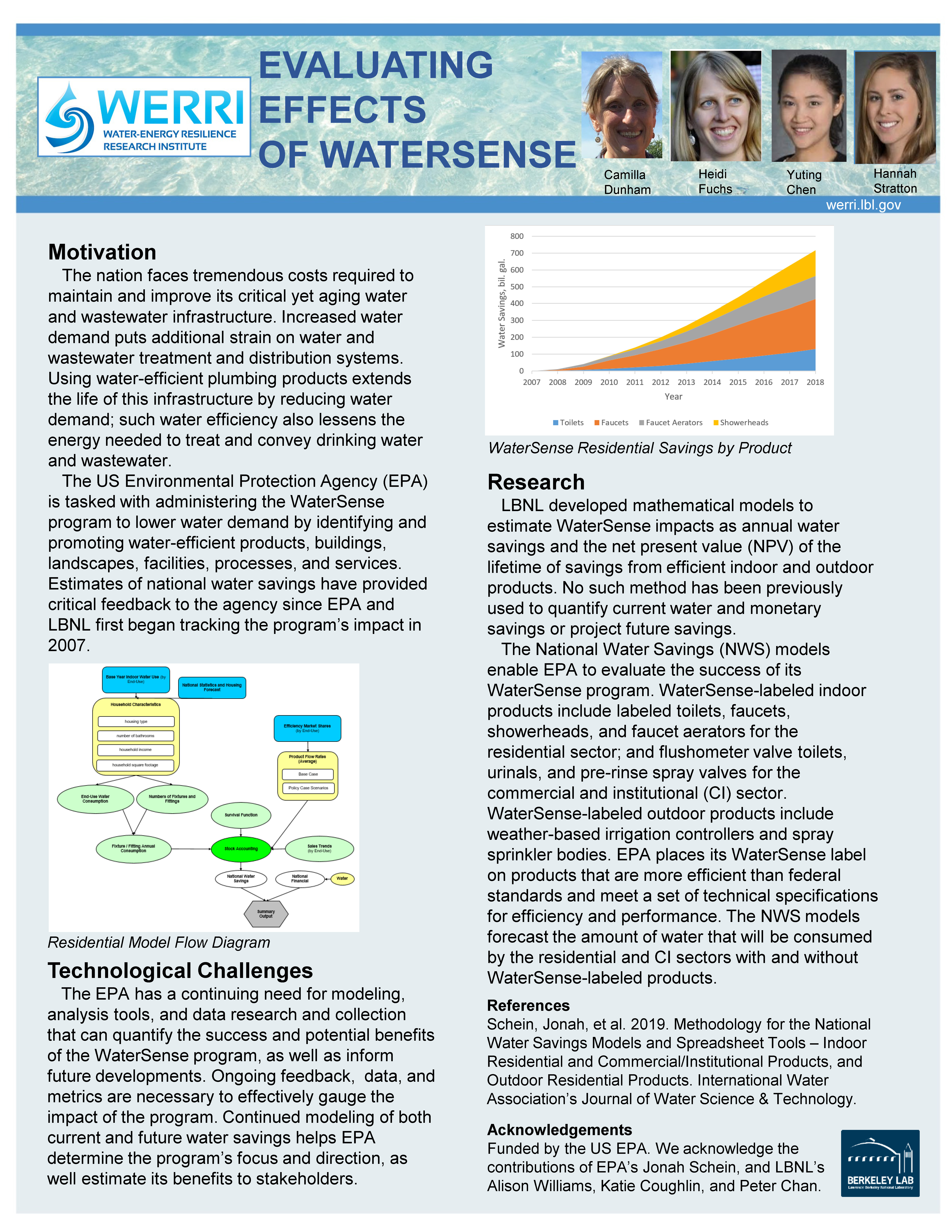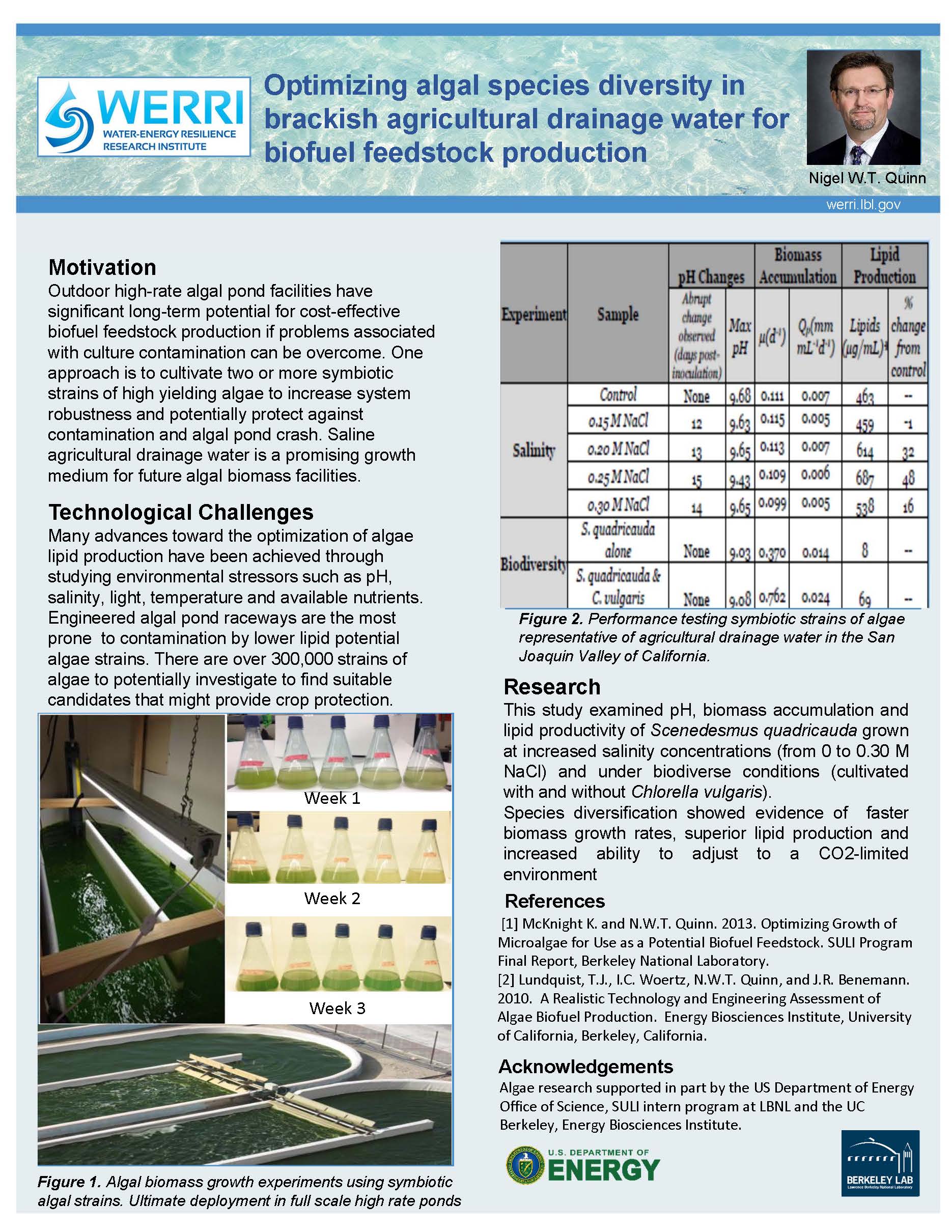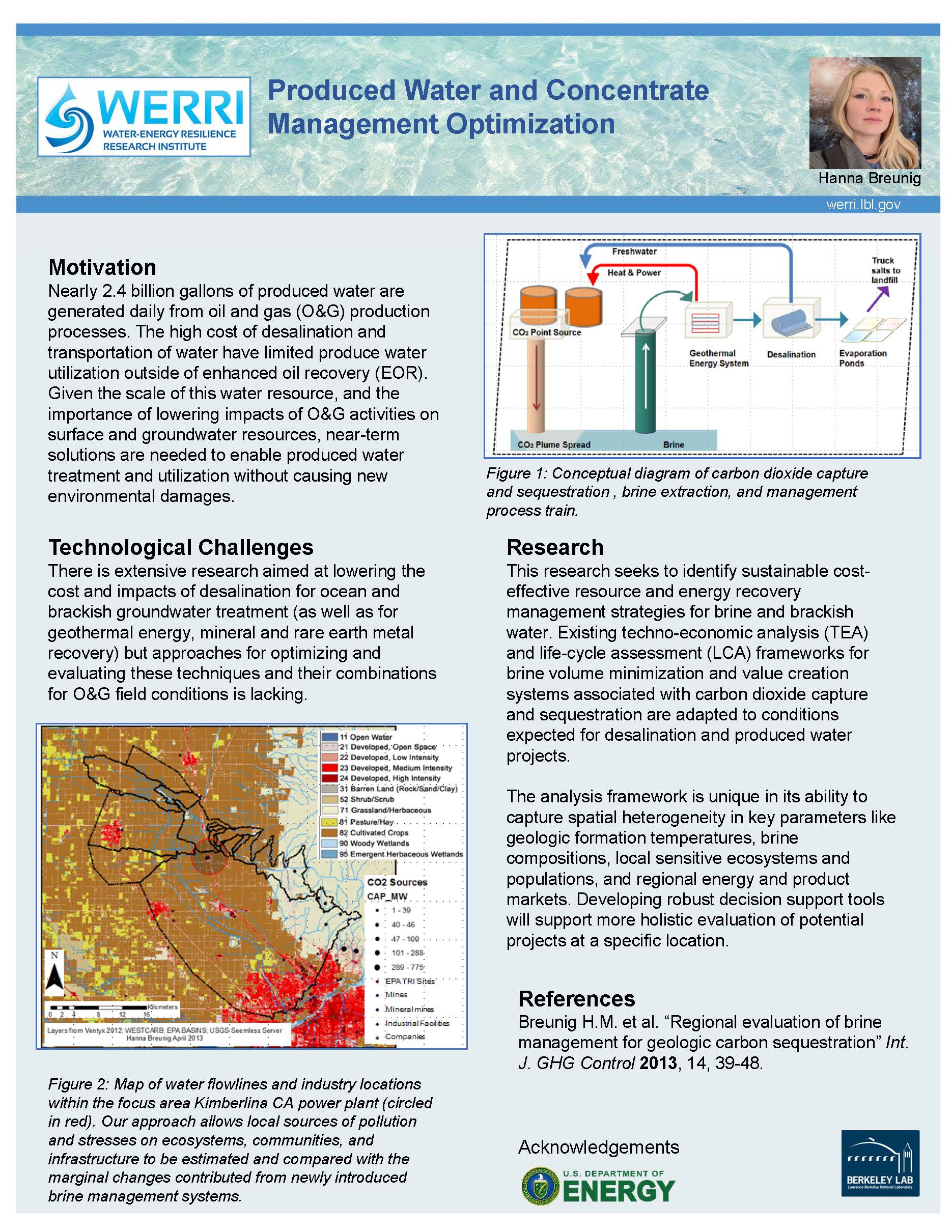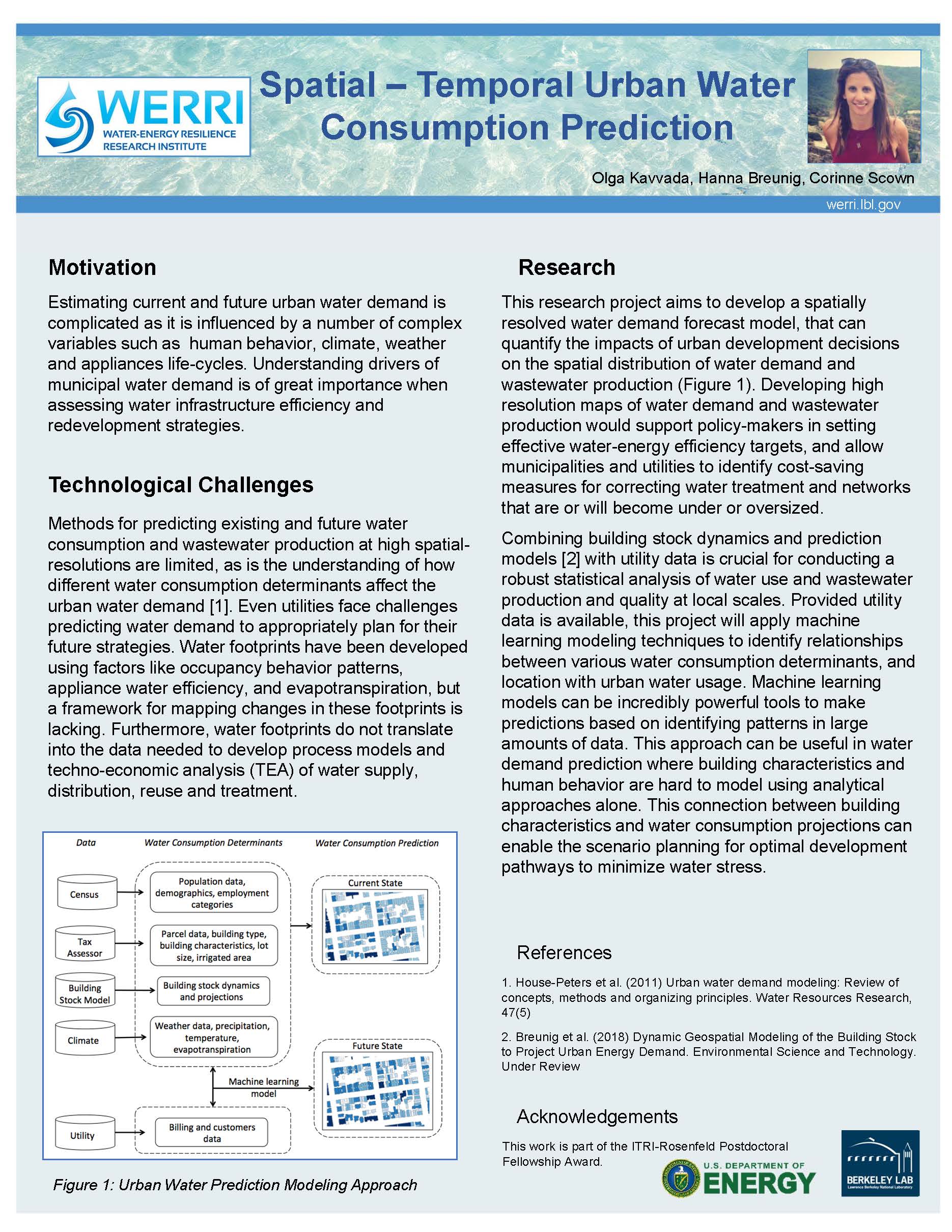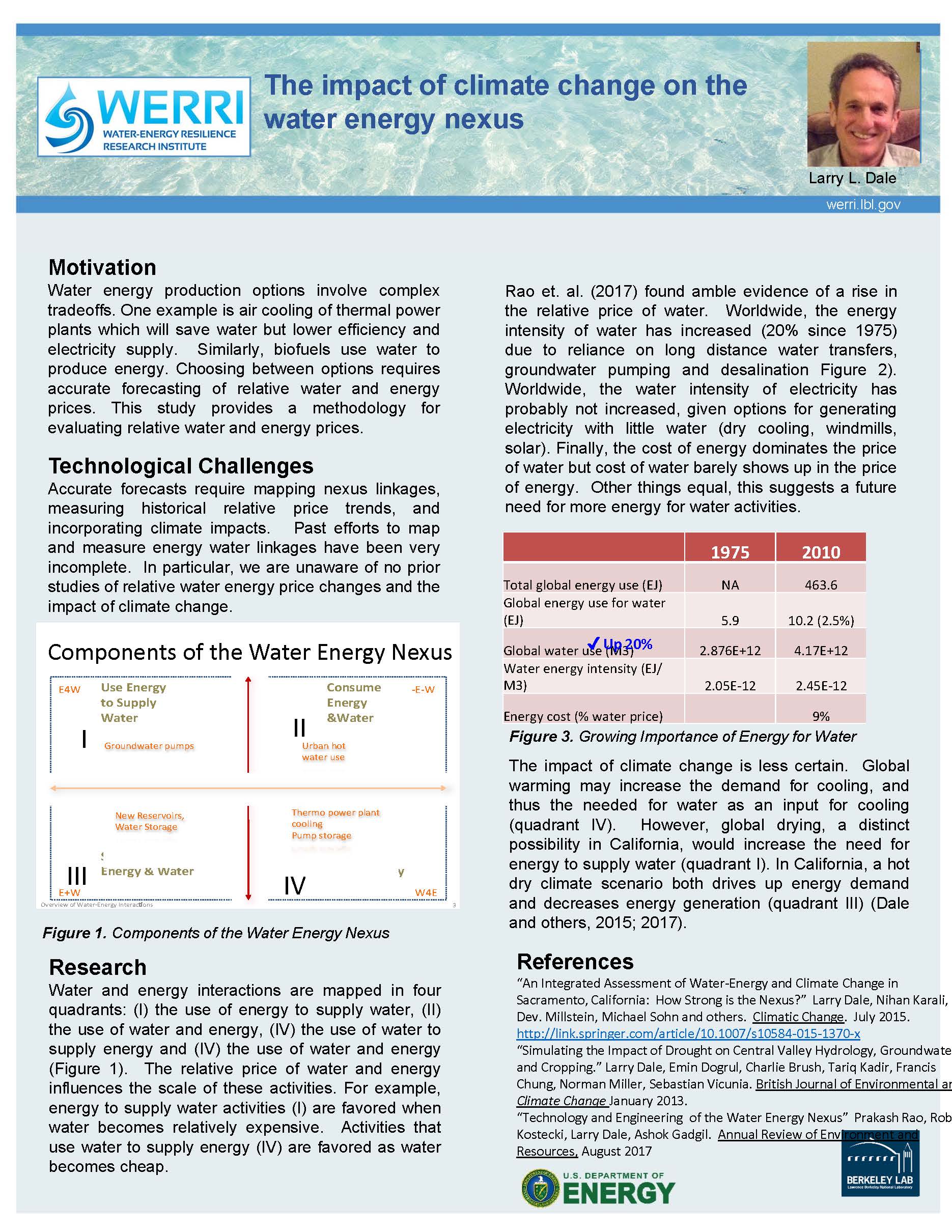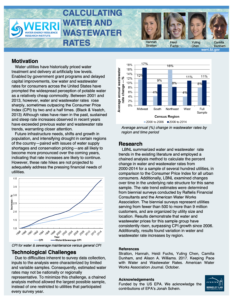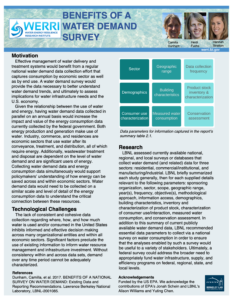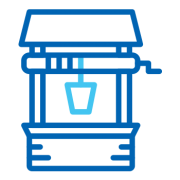Water systems operate with relatively simple, often manual, control systems. As a result, water treatment, distribution and use is not optimized for energy cost or marginal value. WERRI researchers are utilizing best-in-class systems control and optimization strategies from other industries and adapting them to the water sector. WERRI researchers also study the factors that influence water demand, and how water efficiency at the appliance, building, and utility-scale which can be used to lower water usage and make water conservation measures and programs more efficient and effective. Urban utilities that adopt these techniques can save significant energy by pumping water when power is least in demand, and save water when maximally beneficial. Agricultural water users can use these tools to optimize the value of their crops, water and energy use to increase profitability.
- Agricultural Irrigation Pumping as a Grid Resource (Arian Aghajanzadeh)
- Energy Planning for Seawater Desalination Growth in the U.S. (Prakash Rao)
- Evaluating Effects of WaterSense (Camilla Dunham, Heidi Fuchs, Yuting Chen, Hannah Stratton)
- Optimizing Algal Species Diversity in Brackish Agricultural Drainage Water for Biofuel Feedstock Production (Nigel W.T. Quinn)
- Produced Water and Concentrate Management Optimization (Hanna Breunig)
- Spatial – Temporal Urban Water Consumption Prediction (Olga Kavvada, Hanna Breunig, Corinne Scown)
- The Impact of Climate Change on the Water Energy Nexus (Larry L. Dale)
- Calculating Water and Wastewater Rates (Hannah Stratton, Heidi Fuchs, Yuting Chen, Camilla Dunham)
- Benefits of a Water Demand Survey (Camilla Dunham, Heidi Fuchs, Hannah Stratton)
